Dr. Geoffrey Zoeller, Patriots' Path Council vice president for membership and relations, observes that "one of the true strengths of the Scouting movement is our willingness to try new things, share ideas, and have frank conversations about what's working -- & what's not!!"
Today we share some of these great ideas in a post entitled "7 Cub Scout Retention Tips", which have been compiled by Mike Newman. Like our own council's blog, Mike has been posting some very solid ideas on his site (which can be found at:
http://kismif.org/cub-scout-retention-tips/).
Let's take a look at some of the wisdom Mike shares with us ...
#1 – Be Active.

There has been a lot of brain research to come out recently (as discussed in
The Minds of Boys by Michael Gurian) confirming what many of us already knew about how
boys are different than girls. Some of these findings are discussed in the November 2005 Scouting Magazine article: “
The Minds of Boys“. In particular,
boys’ brains tend to shut down if they are having to just sit passively for a long period of time and be talked at.
If you want boys to have fun or learn something, you need to make sure that what you are doing is an
activity, preferably a fun one. If you just talk on and on while the boys are having to sit and listen, they will be bored silly and won’t want to come back.
Keep your den and pack meetings focused on activities rather than the boys having to just sit and listen. If you need to cover something instructional, turn it into
a game, a quiz, a contest– something where the boys are actually involved and doing things.
And preferably it should be something that gets them out of their chairs. Get them physically moving around.
Play active games. Look at stuff. Go outside. These are the kinds of things that boys enjoy.
The more activities that you do with your pack or den, the more your boys will be having fun and will want to come back each week.
Make sure that the time they have to just sit still passively is kept to an absolute minimum.
Link
#2 – Field Trips.

Boys love field trips, and parents usually like them also. Boys like variety.
Going somewhere new is almost always fun and exciting for them.
I would recommend that you try to have a field trip during your regular meeting time
every month.
Some of our pack’s field trips include a senior center visit to sing Christmas carols, visiting our local library, and seeing a nearby nature center.
Of course, you should be sure to get a local tour permit and to send a thank you note afterward. Some of our pack’s field trips help with advancements (e.g., visiting a police station), but others are just good Cub Scout fun.
Field trips are probably the aspect of our program that our boys and parents enjoy the most.
#3 – Outdoor Focus.
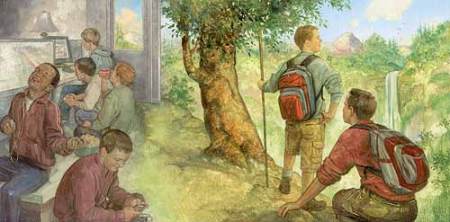
Spending time outdoors doing stuff like hiking and camping are what boys are really looking forward to when they join Cub Scouts.
Make sure that
hiking, camping, and other outdoor activities are a central part of your program. If your pack does not have regular Cub Scout hikes, I would encourage you to start.
A good article on this subject is “
Let’s Hit the Trail” from the October 2007
Scouting. It discusses how
regular hikes can create a lot of excitement for a Cub Scout pack. In my pack, hikes are a big hit with the boys and parents.
Of course, any outdoor Cub Scout activities need to be done in accordance with the
Guide to Safe Scouting including the
Age-Appropriate Guidelines for Scouting Activities.
Be sure that you promote in your pack
Council-organized Cub Scout family camps and day camps.
Boys who get to camp are the ones who are most excited about Cub Scouting.
Unfortunately, we live in a day and age when most kids are not getting to spend much time outside at all. Whether it’s due to playing video games and watching TV or concerns about possible child abductors, kids today are spending a lot less time outdoors than kids did a generation ago.
The May 2006
Scouting magazine article “
Wonder of the Woods” has a very good discussion of this subject with Richard Louv, author of
Last Child in the Woods: Saving Our Children From Nature-Deficit Disorder. Link
Doing outdoor hikes, games, and other activities with your Cub Scouts is not only what your boys would like to do, it’s also what’s good for them. (Photo:
Scouting magazine.)
#4 – Stay in Touch.

Communication with your pack families is very important.
For example, I think it’s a good idea whenever a boy is absent for your Cub meetings/activities, to give his parents a call.
At the very least, you should call when the boy has missed two meetings in a row. Most parents are very appreciative that someone noticed their son wasn’t there and is checking to see how he is doing. Of course, you shouldn’t say “Why wasn’t Tommy here tonight?” You can say “We just wanted to let you know that we missed Tommy at our last activity. Is he doing okay?” In my experience,
parents are usually glad that someone has called. Staying in touch like this is often enough to keep a boy who misses a few meetings from dropping out altogether.
Of course, sometimes boys have to miss for an extended period of time due to sports activities. When that happens, I always tell them that’s fine. We just ask that they stay in touch with us and with what we are doing, and we’ll
welcome them back when their sports season is over.
For scouts who have just joined your pack, the first few weeks of Cub activities are very important. Even though they are officially members of your pack, most parents during the first few weeks are still making up their minds on whether this scouting stuff is worth their time and effort. They are still in an assessment stage. Help them make the choice to stay with your pack.
Be sure your pack is welcoming to new families and that they are introduced to pack and den leadership. They may have lots of questions. You should answer their questions, but
don’t overwhelm them with information. It is important to stay in contact with parents during the first few weeks so they will decide that this is something they want to continue to be a part of.
Email is very helpful with pack communication.
Regular email reminders about upcoming events and activities can help ensure good attendance. I also recommend making and distributing periodic
newsletters with upcoming events, contacts, and frequently asked questions (FAQ’s) as well as announcements of rank badges that have been earned.
Speaking of advancements,
be sure your scouts are progressing as they should on their rank badges. If you see that someone is not coming along on their badge, touch base and see if there are any problems that can be addressed. Getting the rank badges earned and awarded is not only important for the boy’s sake, it also helps keep the boys and their parents wanting to come back.
Good communication can have a big impact on Cub Scout retention and keeping your pack running well.
#5 – Summer.
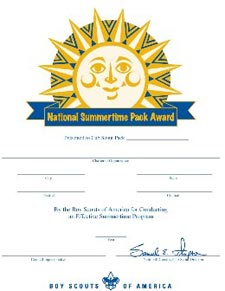
Don’t stop your Cub Scout program for summer.
Summer is when boys have the most free time on their hands, and it is when they need Cub Scouting the most.
“But won’t our boys and leaders be out of town on vacation during the summer?” Usually they will only be gone for a couple of weeks at most during the summer. Of course, you may need to pool your leadership resources on some weeks as some of your leaders are gone, but your pack boys and parents will be glad that your are still doing cool stuff during summer break.
Our pack started having an active summer program two summers ago, and it has worked out great for us. It has helped us with Cub retention over the summer and has been a big boost for May recruiting.
It is a lot easier to keep your scouts coming to your scouting program in the fall if you haven’t stopped for a three-month break.
Cub Scouts are much more likely to drop out in the fall if they haven’t done any Cub Scout activities all summer.
Having an active summer can help with May recruiting as a lot of parents in May are looking for something for their kids to do during the summer. Cub Scouts is a great thing for boys to be doing during the summer.

Having an active summer program can qualify your boys to earn the
National Summertime Pack Award (
Link) and can help them earn the
Cub Scout Outdoor Activity Award (
Link).
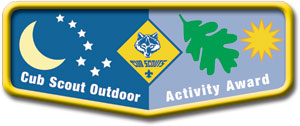
This link is to a good article from the May 2002 Scouting magazine on the benefits of having an active summer program.
Link
Cub Scouting in the summer is great.
If your pack doesn’t have a summer program, now is the time to start.
#6 – Schedule.
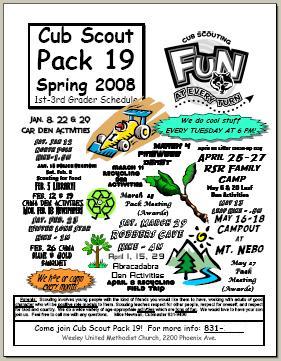
Making and distributing a schedule several months in advance can be a boost for your pack in several ways.
For one thing, it will make your pack look fun and exciting. Just telling your scouts and parents that your pack does hiking, camping, outdoor games, Pinewood Derby, etc. is fine, but it is more convincing if you can hand out a schedule that shows that you have committed your plans to paper.
A schedule will also help with new scout recruiting.
Your schedule will show new recruits that your pack is well-run, organized, and lots of fun. It will help convince boys and their families that your Cub Scout program is where they want to be. Making a schedule will also help ensure that your pack follows through and does the Cub Scouting things your boys would like to do.
The best way to be sure your pack does things like hiking and camping is to set a date, make a schedule, and get it distributed.
If you don’t make a schedule, it is easier for your pack to let the time slip by and not do the stuff you hoped you would.
In our pack, we hand out a 1st-3rd grader schedule (
Link) and a Webelos schedule (
Link) every few months to let our scouts and families know what events and activities are coming up with our pack. We use the same (or similar) flyers for our recruiting. Our schedules have helped our pack a great deal with recruiting new boys and with retaining our current members.
The important thing is to plan cool Cub Scouting stuff and distribute your schedule so current scouts and potential recruits will know about the awesome stuff boys in your pack get to do.
#7 – Webelos Appeal.
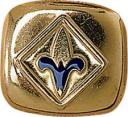
Although the boys in your pack are all kids, they are not all young kids. They probably range from 6 to 11 years old.
There is a lot of difference between 6 and 7 year olds and 10 and 11 year olds.
Some activities that are a lot of fun for your Tiger and Wolf dens would be way too young and kiddie-ish for most Webelos Scouts.
It’s not a great idea to have your entire pack doing an activity that will make your Webelos Scouts feel like they are back in nursery school. For example, singing “I’m a Little Teapot” can be a lot of fun for your Tigers, but if you make your Webelos join in many songs like that, they may just look at each other and say “We’re too old for this.” and not come back.
One of the great things about putting on a Cub Scout program is seeing how much boys grow and develop from the time they are first grade Tigers until they are fifth-grade Webelos.
Be sure most of your pack activities are designed for the interests and needs of all your boys.











